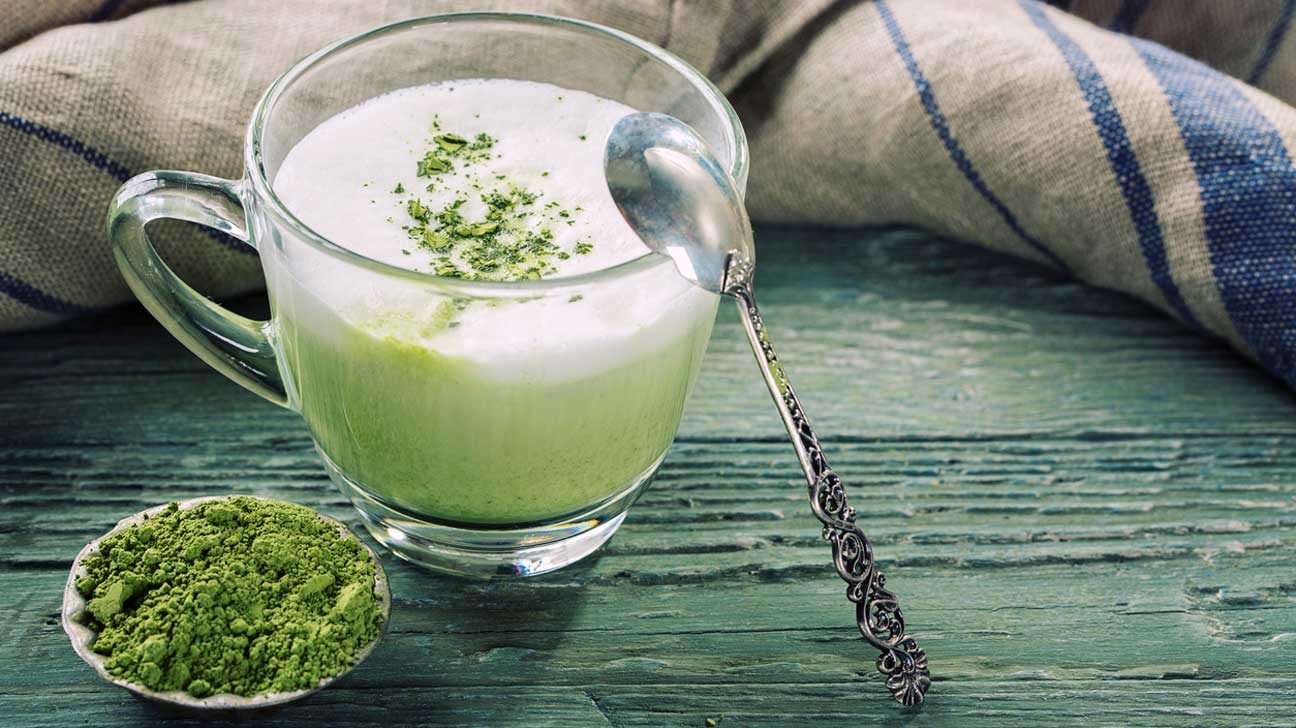Do you start your day with a cup of coffee? Are you bored drinking the same tea every morning? Are you seeking an alternative beverage with less caffeine? If yes, you must try authentic stone-ground green powder – Matcha Tea. This superfood of green tea comes from Japan. It is skyrocketing in popularity and is winning over even dedicated coffee lovers.
So, What is Matcha Tea?
Like leaf green tea, matcha tea is derived from the same tea plant – Camellia Sinensis. Beyond the flavour, what makes this different is the way it is processed. Unlike green tea, it is the powdered form of tencha, a shade-grown tea. It usually is covered for at least 3-weeks before harvesting to boost L-theanine and the chlorophyll level. Harvested tea leaves are first steamed to stop fermentation and then dried. After this, the dried leaves are stone-ground into a fine powder to make matcha tea.
How Much Caffeine is in Matcha Tea?
Caffeine occurs in black tea as well as green tea naturally. However, the amount depends on the tea plant variety, its growing conditions, and brewed process. So, like leaf green tea, matcha powder contains caffeine.
Unlike leaf green tea, where the tea leaves are infused in hot water, matcha tea is prepared by whisking one scoop of matcha powder into 2-4 ounces of hot water. Here, you are consuming the whole tea leaves rather than an infusion. So, you get more caffeine than a cup of steeped tea.
On average, an 8-ounce serving of matcha tea has around 45 – 60 mg of caffeine, which is more than green tea but less than a cup of coffee.
Matcha tea is excellent for those who want some caffeine in the morning or during office hours but want to avoid caffeine crashes. It is also an ideal hot beverage for those sensitive to caffeine and who want to try something different from a regular cup of coffee and tea.
What Are The Benefits of Matcha Tea?
Matcha is very similar to leaf green tea; however, matcha is made up of premium-quality tencha tea leaves, and the whole leaves are ingested. So, it is a more potent source of nutrients and antioxidants. That is why it has a long list of health benefits. So, let’s take a look at matcha tea benefits.
High in Antioxidants: Like other green teas, matcha tea has a class of antioxidants known as catechins. However, the catechin – EGCG (epigallocatechin gallate) is high in matcha. It aids in stabilizing harmful free radicals and reducing cell damage.
High amino acid: Matcha contains high levels of L-theanine, an amino acid responsible for producing the happy hormone – known as dopamine – that is healthy for your brain. It may aid in boosting your concentration level, promoting a sense of calmness, and reducing the stress level. Apart from this, L-theanine can alter the effects of caffeine. So, you need not worry about the jitteriness and crash of caffeine that comes with coffee for example.
Beautiful Skin: Matcha green tea can benefit the skin as it is packed with antioxidants. Antioxidants neutralize free radicals and protect your skin cell from damage. Moreover, the anti-inflammatory properties of matcha tea helps detoxify the toxin from your body, which may further aid in improving your skin glow and clearing acne. Apart from this, you can use matcha tea as a facial mask to improve your skin texture.
High in Chlorophyll: The primary reason behind the dry and inflamed skin is the low level of fatty acids due to the low magnesium level. And the central atom in chlorophyll’s molecular structure is magnesium, which is responsible for providing oxygen to our skin tissues. Since matcha tea is rich in chlorophyll, it may aid in improving your skin elasticity and delaying the ageing process.
High nutrient content: Since chlorophyll has high nutrient content, it is a rich source of vitamin A, C, E and K. All these vitamins are essential to nourishing your skin and keeping it looking young and healthy. Hence, adding matcha tea to your diet is a great way to add these vitamins to your daily skincare regime and get revitalized and rejuvenated skin.
Reduces wrinkles: Daily sun exposure can lead to fine lines, dark spots, and wrinkles. However, matcha tea has a high chlorophyll content; it acts as a natural sunscreen. Since chlorophyll is known for absorbing light, it may help protect your skin from the sun’s harmful UV rays. So, adding matcha tea can aid in reducing wrinkles, fine lines, and dark spots. However, remember that it is not an alternative to sunscreen. Apply your sunscreen indoors and outdoors.
Reduces bad cholesterol: Matcha tea may aid in lowering the level of triglycerides and preventing the oxidation of LDL cholesterol. As a result, it aids in keeping a variety of cardiovascular diseases at bay. Apart from this, it may help reduce the inflammation of blood vessels.
The Bottom Line
Matcha tea is a great beverage to add to your diet. Apart from the aforementioned benefits, it may provide you instant energy to kick start your day and to rid yourself of sleepiness and fatigue.
Now that you have acquired knowledge about matcha tea caffeine content and the benefits of matcha, what are you waiting for? Choose the best quality matcha tea to improve your health and skin. Remember that you should drink matcha tea daily to see visible results.
